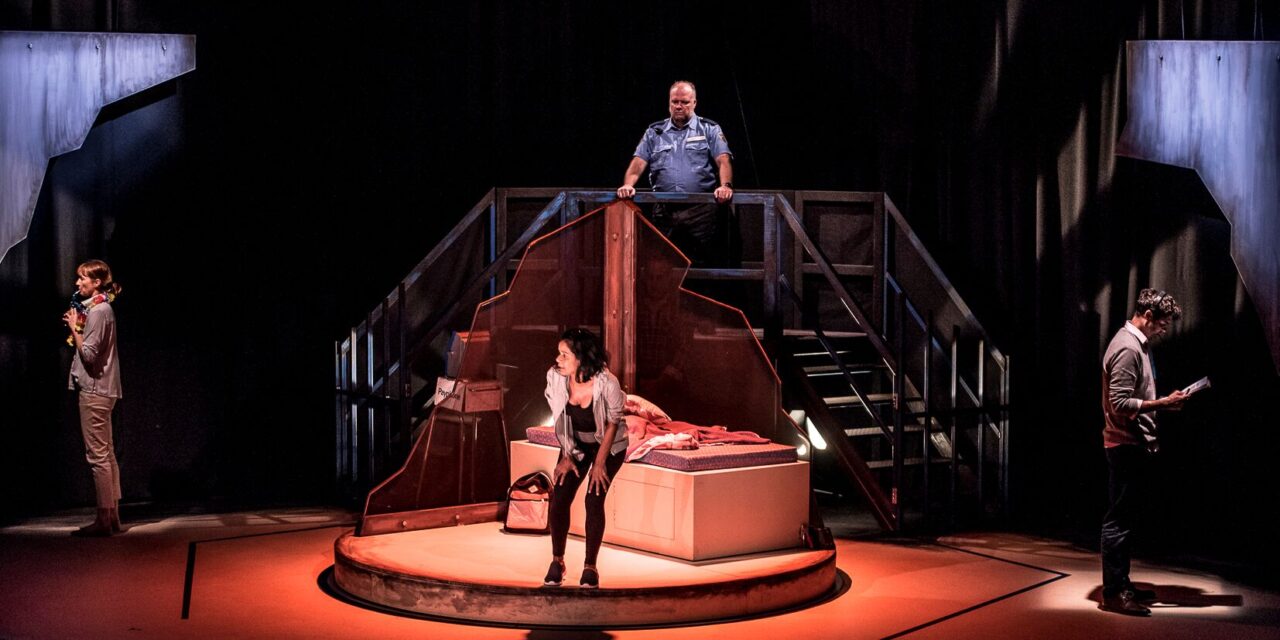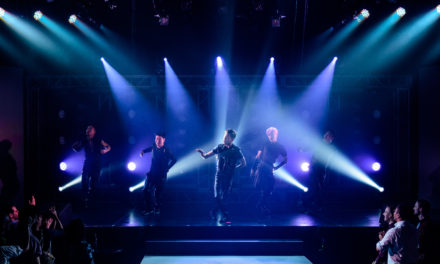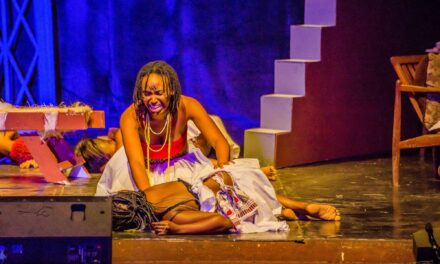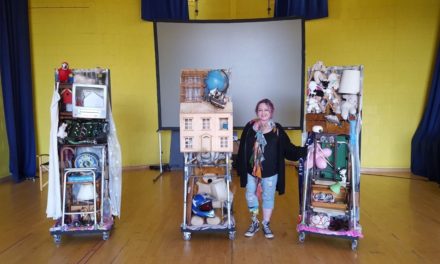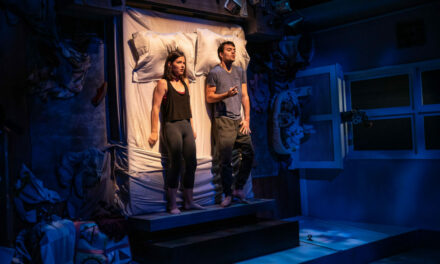The Yirra Yaakin Theatre Company is the Australia’s biggest Aboriginal-led theatre company. Yirra Yaakin (Yir-raarh Yaarh-kin] means “Stand Tall” in Noongar language; the company is based in Perth, Western Australia in the heart of the Noongar Nation. In 2019 Eva Grace Mullaley was appointed as the Company’s new Artistic Director. She discusses the impact of the COVID-19 pandemic on Yirra Yaakin and on Australian theatre communities.
TheTheatreTimes: How is the virus affecting the theatre community in your country, and your institution?
Eva Mullaley: From the worst to the untouched. Our independent artists and independent arts scene are struggling greatly. Our companies got news of success or not for 4 year federal funding during this pandemic so there has been grief and support in droves across the nation. Some companies are keeping afloat though and with success comes the need to support our industry; survivor guilt is alive and well.
TTT: How has the pandemic affected the livelihood of your artists?
E.M.: Most are not eligible for government support as they work in a gig economy or have part time jobs that they are now clinging to for dear life – it’s not enough.
TTT: How has the virus affected your international visibility?
E.M.: Yirra Yaakin was in the process of reigniting our International visibility, so it definitely put a stopper in those plans. Virtually we are still in contact with a lot of people but making new relationships is very hard during these times.
TTT: What new practices did you develop in response to the pandemic and social isolation?
We developed the Solidarity Project Series where we are supporting 3 artists to collaborate with other artists, virtually or physically, and develop works that we will have showings of at the end of the year. This include a Graphic Novel of a past production, supporting a new playwright to develop collaborative skills and the creation of a new dance/theatre show for families. In the response to COVID-19 and with the mental and creative welfare of our artists in mind, Yirra Yaakin have also started up 4 groups/clubs so we can help local artists to stay engaged and creative –
The AUSLAN team are 10 people learning AUSLAN together, training paid for and by Yirra Yaakin to upskill artists and enable them to contribute to First Nations Arts in a meaningful and accessible way.
Honouring Elders is where we check in with our local Noongar Elders and post about them on our social media so we can alleviate the worry of our community.
Yirra Play Club is a play reading club for up to 20 people meeting fortnightly over Zoom. Keeping Yirra Yaakin and the WA arts community engaged with each other, supporting independent artists to facilitate each session and reading plays that we would normally not have time to explore together.
Which Way? First Nations Poetry workshops. Drawing on Yirra Yaakin’s connections and want to support midcareer artists as well, we have worked with Jennifer Compton (renowned Playwright and Poet) to develop a short workshop series to encourage and support emerging First Nations poets in Perth WA – with a scope to expand.
TTT: How will this affect how audiences congregate. Will theatres have one seat filled, one seat empty. What might that mean in terms of how audiences relate to each other and the work?
E.M.: It’s just not viable to open our theatres or produce shows within the social distancing parameters currently in place. Things are changing so fast though, so hopefully we will have some clarity around how we will make work soon, either back to how it was or moving forward in to a new world.
TTT: Where do you see theatre going after the pandemic?
E.M. We have no idea how this is going to change theatre into the future but we are bracing and hope to embrace the challenge.
The interview is the part of the asynchronous discussion panel at the 2nd International Online Theatre Festival 2020. The IOTF is an annual online theatre festival, showcasing the work of diverse global artists. The 2020 festival created a digital place for exploring multiple definitions of theatrical space. It was presented in collaboration with Stanislavsky Electrotheatre, Schaubühne, Stage Russia, Ninateka and DigitalTheatre+. With the support of The Royal Central School of Speech and Drama, University of London, Emerson College, and all the companies who have given permission for their work to be screened and shared.
This post was written by the author in their personal capacity.The opinions expressed in this article are the author’s own and do not reflect the view of The Theatre Times, their staff or collaborators.
This post was written by International Online Theatre Festival.
The views expressed here belong to the author and do not necessarily reflect our views and opinions.

